Has The Time For Classic Rock’s Eulogy Arrived?
In this piece Fred Jacobs takes a long hard look at the legacy of classic rock, and whether the genre will be able to endure and gain more popularity as we move forward into the future and more legacy artists age out, or whether its time as a genre has finally come.
____________________________
Guest post by Fred Jacobs of Jacobs Media
I’ve been fielding questions about the “Classic Rock Death Star” for more than 30 years now. From the format’s beginnings, naysayers have been convinced that fatigue and repetition would ultimately deep-six these rockin’ gold based stations.
But that hasn’t been the case – in fact, not even close. The format has actually thrived in the PPM era, often scoring record ratings for stations that execute it well. I probably get to see more music and perceptual research for Classic Hits/Rock stations. And I can tell you without qualification, the state of the format is:
As strong as ever
Every June, Nielsen publishes a scorecard for the format. And a remarkable trend has begun to manifest itself. True, station after station in market after market are knocking down strong ratings. And the trend line is very positive – even among 18-34 year-olds – a demographic group that no one would have predicted would be part of the format’s story in 2018 (including me):
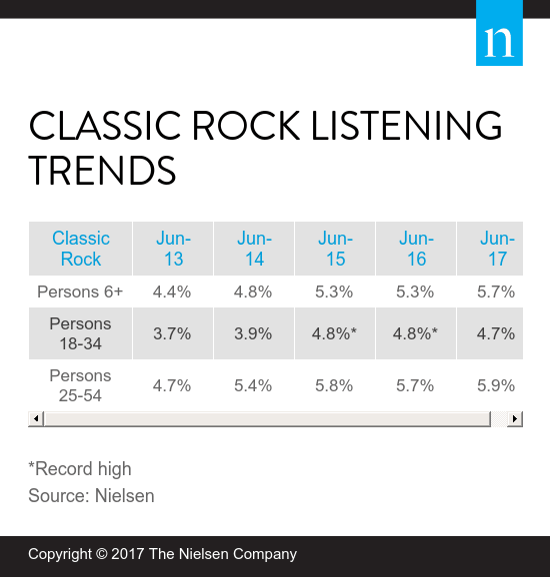
We’ll have to wait and see how June 2018 ends up. But whether you’re looking at mass appeal numbers like 6+, the 25-54 sweet spot, or those 18-34 members of Gens Z and Y, the story is impressive.
All of this hit home earlier this week when it was brought to my attention the hashtag #MillennialClassicRock was trending. It’s a wonderful example of social media humor based around the lyrics of big Classic Hits and Rock songs. And while many of these Twitter “content creators” are probably outside the Millennial boundaries, the humor, the irony, and the generational snark is LOL-worthy:
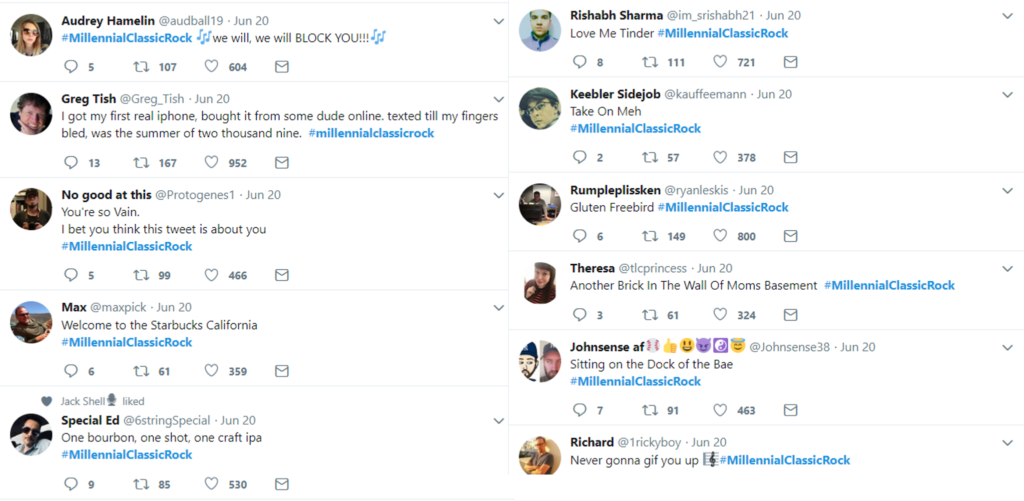
And it tells you that aside from the music’s sustained popularity – on the radio, in movie soundtracks, on video games, and in television ads – it has also become a fixture in our entertainment culture.
So, what’s the problem?
It turns out a new book – “Twilight of the Gods” by Steven Hyden – talks about the end of the line for many Classic Rockers due to advancing age and other health issues that impact all of us eventually – even the most iconic rock stars.
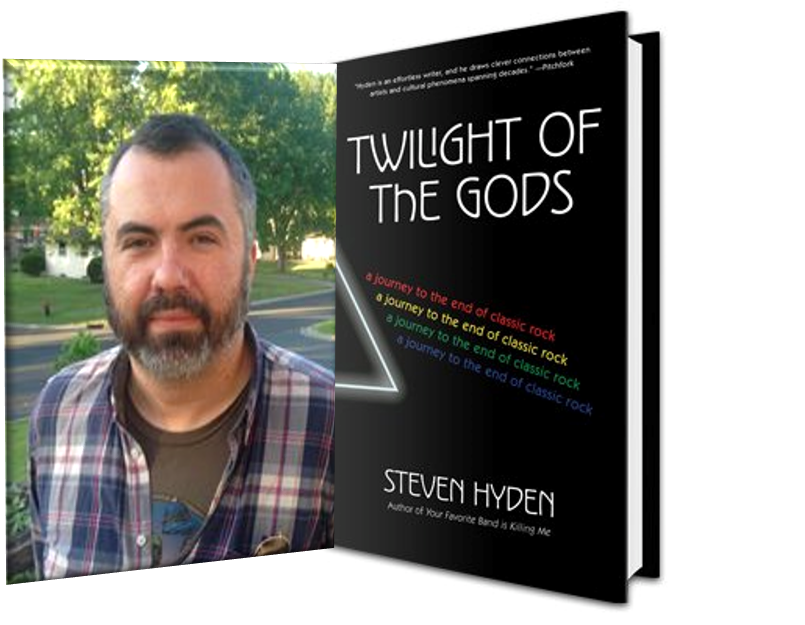 Steven Hyden
Steven HydenAuthor Hyden is a living, breathing example of why the Classic Rock format is alive, well, and thriving. He’s a Gen X dyed-in-the-wool uber P1 to the music. He’s a loyal super fan, not the least reluctant to write about his worship of the music and the brilliant artists who wrote and performed it – and in many cases, still playing concerts today.
That’s where he begrudgingly admits the reality of Father Time, expressing a sense of melancholy and even regret when he saw the Who perform live in 2012, and came to the realization the band was succumbing to advancing age.
Incidentally, I’ve had that same personal reaction to seeing my favorite bands from the ’60s and ’70s lose their fastball right on stage in front of thousands. The Who’s Super Bowl performance in 2010 was that moment for me. I’ve gotten to the point where I won’t go to concerts from certain Classic Rock bands because I’d rather remember them as they were.
Hyden was recently interviewed by The New York Times‘ John Williams, and left us with some incredible nuggets that eloquently explain the lasting power of the radio format:
“Because of the nature of Classic Rock radio playing these songs over and over gain, these artists are frozen in amber in a certain way.”
“The connection I have to this kind of music is the closest thing I have to religion – which is a very Classic Rock thing to say, a very over-the-top, bombastic statement.”
“When people mourn pop stars, what they’re really mourning is a piece of their own past.”
“Before Classic Rock radio, you were on the radio because you had hits, and once you didn’t have hits, you were gone. Classic Rock introduced this idea that you could stay on the radio forever without having any new songs. It created this situation where classic bands were competing with new bands. It was like rock history being split in two.”
Despite the brilliance of these observations, Times writer Wiliams avers the genre “is in steep decline.” But music history – now spanning centuries – suggests he may be seriously mistaken. In the interview, Hyden talks about how bands that have survived the loss of key members have persevered, often “melting together” to continue touring.
Think about AC/DC who replaced their lead singer, Brian Johnson (who replaced Bon Scott), with Axl Rose of Guns N’ Roses.
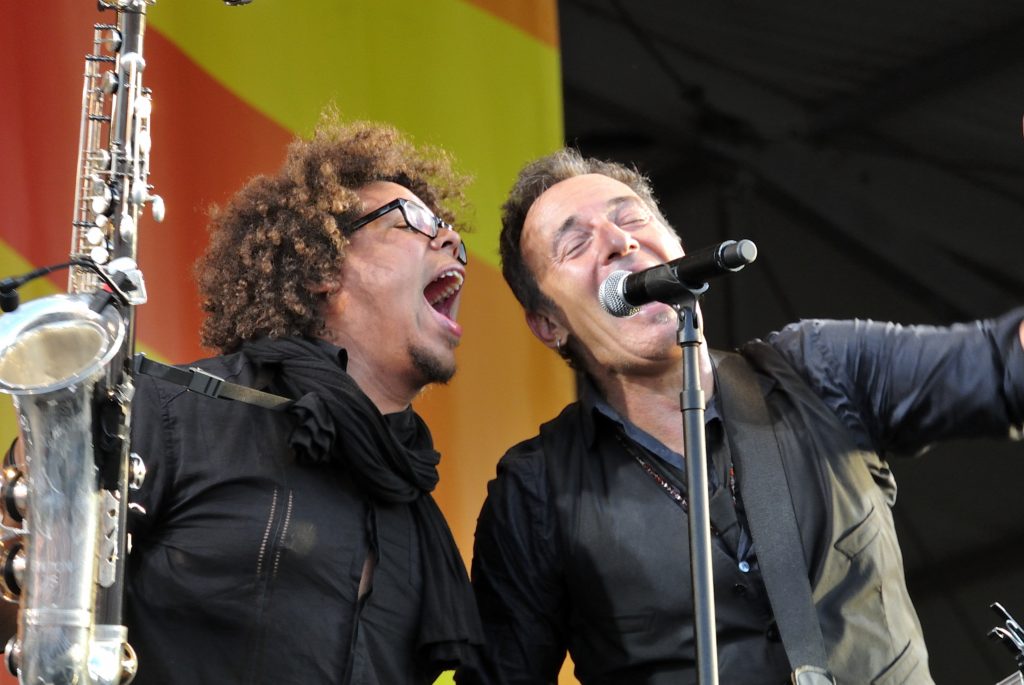
Then there’s the “keeping it in the family” strategy. Bruce Springsteen somehow replaced his late band mate – Clarence Clemons – with the saxophonist icon’s nephew, Jake (pictured right). And Wolfgang Van Halen – Eddie’s son – is now playing bass in place of original band member Michael Anthony.
In an interesting generational twist, Ringo’s son, Zack Starkey, took over for the Who’s Keith Moon many years ago.
And mixing genres, Country star Vince Gill is now sitting in for the late Glenn Frey, co-founder of the Eagles. And interestingly, so is Frey’s son, Deacon.
But none of these slick substitutions explains the hundreds of “tribute bands” touring the country and the world, brilliantly carbon-copying the music, outfits, style, and vibe of the legendary Classic Rock bands they celebrate.
Talk to fans of these skilled “tribute bands” like Australian Pink Floyd or 1964 (the Beatles) at their concerts, and you’ll hear some of the same oozing, unabashed passion Classic Rocker fans had for the original performers decades ago. Whether you’re old enough to have grown up with the music – or you wished you had – it’s still very much possible to enjoy the musical sounds of generations past.
And there’s precedence for this. Symphony orchestras have been successfully “covering” Tchaikovsky, Mozart, Wagner, Brahms, and the scores of other long-dead Classical music composers and performers for years and years.
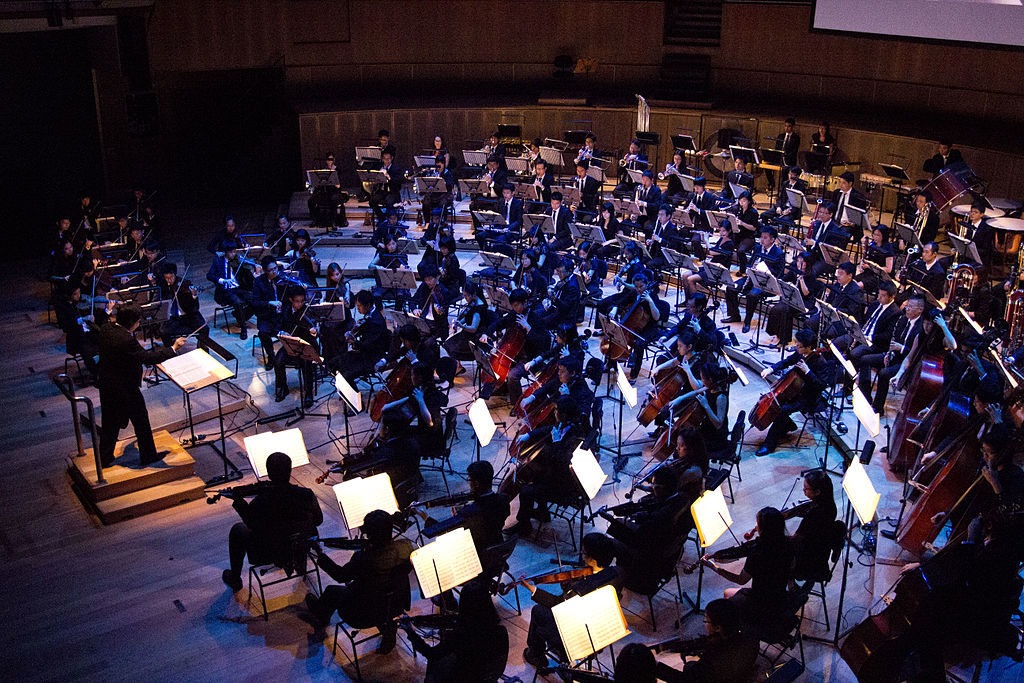
That’s right – think of the New York Philharmonic or the Detroit Symphony Orchestra as “tribute bands,” paying homage to the greatest musicians and composers of the ’60s and ’70s, and you can visualize how Classic Rock fans will enjoy the live music of Prince, Tom Petty, the Who, decades and decades from right now. It will simply be performed by brilliant musicians of future generations, lovingly learning how to play and sing those classic songs and albums.
And then there’s holograms, but that’s for another blog post.
Mark Twain was right to get a little jerked out of shape when his death rumors circulated. And so should those of us who program, present, and love Classic Rock – as well as the stations that continue to pay homage to the music.
Rumors of its demise are greatly exaggerated.
The artists may not live forever, but the songs remain the same.
Thanks to Bob Ottaway, Mike Stern, and Lori Lewis.
Fred Jacobs founded Jacobs Media in 1983, and quickly became known for the creation of the Classic Rock radio format. Jacobs Media has consistently walked the walk in the digital space, providing insights and guidance through its well-read national Techsurveys.
In 2008, jacapps was launched – a mobile apps company that has designed and built more than 1,000 apps for both the Apple and Android platforms. In 2013, the DASH Conference was created – a mashup of radio and automotive, designed to foster better understanding of the "connected car" and its impact.Along with providing the creative and intellectual direction for the company, Fred consults many of Jacobs Media's commercial and public radio clients, in addition to media brands looking to thrive in the rapidly changing tech environment.